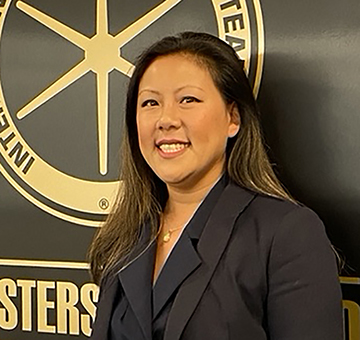Keeping health care prices down—another good example of why Teamsters do politics
July 24, 2018For the fifth year in a row, the availability and affordability of health care topped the list of concerns in a nationwide Gallup poll conducted in May. Health care ranked higher on the list than crime and violence, the economy, unemployment, the quality of the environment, and many other issues.
This should be no surprise to any Teamster. The rising cost of healthcare is front-and-center in every contract we negotiate, eating away at money we could otherwise put into raises and our pensions.
Prescription drug prices are probably the single largest factor driving up health care costs. The amount of money Americans pay for prescription drugs has almost doubled over the last three decades. Americans pay two to six times more for prescription drugs than any other country in the world—an average of almost $1,200 per person per year.
According to the U.S. Government Accountability Office, between 2006 and 2015, about two-thirds of U.S. pharmaceutical companies saw their profits increase by 17.1%. By comparison, profit margins for non-pharmaceutical companies rose by an average of 4-9% during the same period. Annual sales revenues now top $775 billion for the industry.
Where do those profits go? Mostly to shareholders and company executives who receive generous stock options. That represents a huge transfer of the money we spend on drugs into the hands of the wealthy.
Another group that reaps the rewards of soaring profits are politicians, particularly Republicans. In the decade leading up to the 2016 election, drugmakers spent $2.3 billion lobbying Congress. It’s no wonder that they defeated 119 proposals to rein in drug prices.
In 2016 alone, the industry contributed over $22 million to candidates for Congress and spent over $240 million in lobbying—more than any other industry. No wonder Congress is not helping us out.
Californians win protections through political action
But here in California, it’s a different story. In 2017, Senator Ed Hernandez—a Teamster-endorsed politician—introduced SB 17, a bill about transparency. It requires drug companies to give 60 days advance notice for any significant prices increases, including an explanation about why they needed to raise the prices. The bill also requires health plans and the state to track spending and price increases. All of this data would be available to the public and to us as we negotiate contracts.
The pharmaceutical industry came out in full force to defeat the bill, flooding the Capitol in Sacramento with high-priced lobbyists. Labor pushed back. We sent members to Sacramento and met with legislators at home in their districts. Local 856 Secretary-Treasurer Peter Finn testified at a committee hearing in Sacramento, providing key insight into the challenges we face.
In the end, we won! Governor Brown signed the bill into law in October 2017 and it went into effect on January 1, 2018. It is the strongest prescription drug transparency law in the country.
So what happened? According to the Los Angeles Times, “A handful of the world’s biggest pharmaceutical companies are canceling or reducing some planned price increases in the United States after California enacted a new drug pricing transparency law and amid political pressure over rising costs for medications.”
This is one of many good examples about why we do politics.
DRIVE makes all the difference
This is another election year. Teamsters will again interview people running for public office to see where they stand on issues important to our members. We try to learn about their background and values. We endorse the people who support us.
Our endorsement carries weight, and it comes with more. We contribute to their campaign funds. We make phone calls to our members to remind them to vote. And we do the hard work of knocking on doors to talk to voters. All of this work is supported through the voluntary contributions from Teamster members to our political action fund DRIVE—Democratic, Republican, Independent Voter Education. Without it, our union would be much weaker. Even a few dollars from your paycheck makes a huge difference.
We will never match the money that pharmaceutical companies spend on politics, but we can still beat them if we all pitch in. After all, there is power in numbers. That is what the Teamsters union is all about!

